IT’S THE MORNING of my interview for a Dutch residency permit. Being offered an espresso as I check in is a civilised start. It makes up for the havoc a disconcertingly colourful windmill and pair of clogs are wreaking on my jet-lagged frontal lobe.
I'm before a first desk.
The passport is okay, but my crumbling birth certificate from Saskatoon, Saskatchewan, not so much. “It’s not a legal document,” I learn. “It’s all I’ve ever had,” I offer, unhelpfully I realise. But I suppress a quip about lawlessness and indiscriminate birth in western Canada.
“Are you married?” The question is always abrupt for a divorcee. And it has this assumptive air against which my tired brain reacts. Inner mirth just saves the day, holds my tongue, and not for the first time. I’m a stealth immigrant from the Great Prairies, I muse to myself, intent on a stint of international serial bigamy. En route to founding a vast polyamorous colony on the Wadden Sea.
Bartolomeo (there is a name card) isn't actually concerned with marital status. A knowing glance puts me at ease: I'm required to ask, it says. Civilisation can be gauged by such glances, by the camaraderie of forbearance and empathy they convey. He's about my age, 50-something. With warm rheumy eyes behind thick-rimmed glasses and a jaunty cap over his shaven head, he fashionably endures. A kind of Euro-tilt on Jeff Tweedy. “Bart,” he says, reaching across the desk to shake my hand, “I should've started with that.”
On to the interview’s next hurdle.
Bart slowly unfolds the housing agreement for my apartment, checks his computer, and sighs. “There is someone else living there.” I don’t move in until February, I explain. My brief panic is calmed by another of his knowing glances.
A colleague is found and consulted. Wearing his hair long, in colourful suspenders and yet another set of thick-rimmed glasses, he appears at the desk. There is a form, he explains. A form that my sponsoring institution can submit, temporarily making their address my own. Suspender Supervisor Euro Tweedy flashes me and Bart a glance —yes, he’s got it too!— then kindly takes it upon himself to call up the institute to see what might be done.
It’s pleasant to realise that no one in the office seems flustered as obstacles arise.1 We are sitting there in the hope that a form will arrive as an email attachment, and Bart isn’t telling me to come back later.
He’s curious as to why I’m in Amsterdam. After a “you’ll be sorry you asked,” I mumble something about writing away from it all, among people of like mind. About Spanish monks, about miracles and the Virgin Mary, about everything going to shit. “Aguirre: The Wrath of God!,” Bart exclaims. This, in my books, is pretty good listening and associating. And a step up from the more common “oh, the conquistadors and all that?” Or, to stay with popular filmic connections, “isn’t that like Scorcese’s ‘Silence’”? or Joffe’s ‘The Mission’ ”?
Still, I barely get in edgeways that Heidi and I are gradually making our way through Werner Herzog’s films. “A few of them are odder, and more amusingly ego-centric, than compelling,” I venture critically, to no response. My bureaucratic host has love for them all. “You must find Dieter Needs to Fly, he insists, “a documentary about a downed pilot, then a prisoner in Vietnam. Herzog became obsessed, and then went on to re-tell the story as a feature film [Rescue Dawn], brilliant!”
We chat about Herzogiana for awhile, until it occurs to Bart that there are some other things to do. He ushers me to a colleague’s desk in the “immigration” corner of the office, and as he departs I’m already missing him.
But Teiya is also a character who glances knowingly. There must be a section in their training…. In her case, the knowingness is communicated through a cascade of dark curls that eclipse not only her white sweater but also the half of her desk not dominated by a menacingly massive camera-and-finger-printing machine. She starts in Dutch, then switches to English with a Ghanaian accent, informing me that the Biometrics System is “down” and who knows when it will come back “up.” I furrow my brow, but her knowing glances, somehow taking in both me and the offending machine, keep me clinging to hope. “No one remembers how to do it by hand.” I imagine the olden days, a brace of Biometric Euro Tweedies wielding only pencils and note pads, wrapping their fraying tape measures around my cranium and thighs.
The registration of my “unique physical characteristics for the purpose of security” will have to wait.
Leaves me time to get the polyamorous empire up and running without fear of detection, I muse.
Bart then checks back in, and there are more knowing glances, first between the pair of them and then with me. No one can promise a thing, but I get the distinct impression that, since I’m waiting on the form anyway, I might just want to hang about for a bit, take a walk, find a coffee. More knowing glances. I'm getting the hang of this Amsterdam residency thing.
I spend an hour and a half reading Karl Ove Knausgaard in the corner of a nearby café.
Knaussie is up to his old tricks, struggling along, crushingly honest and vulnerable and arrogant at the same time, misanthropic and deeply humane, digressing through time and theme, dispensing his pearls. “I make a living from all the embarrassing situations I have been put in,” he observes to a friend who’s his polar opposite.2
When I return to the office not only has The Form arrived but the Biometrics System is back up and running. Time for my next desk in “immigration.” This time I’ve entered the realm of Björn. I’m feeling zen and it’s a magnificent place to be.
“Yah, I come from Sweden,” he volunteers, “just me and Inge. She makes yoga nidra recordings. They put me right to sleep, but people love them... We arrived in Amsterdam and just kinda stuck.”
It turns out I’m going to need Björn’s stick-to-iveness, and a dash of Inge’s nidra too. For despite trying all of my fingers and thumbs, not one of them will leave an adequate print on the glass of the massive modern machine atop his desk. I am told to rub my temples and then the sides of my nose. “Try again, the index fingers,” instructs Björn. Nothing. I'm given some moisturiser. “Try your pinkies.” Björn consults his screens. Nothing.
And yet it's being silently communicated to me that, well, this happens. A lot. There’s no missing that the biometrics machine is a capricious intruder, a fairweather friend in the land of Björn. He may have keen competition among his colleagues, but Björn is the king of knowing glances. Another senior colleague is summoned. She arrives looking ready for battle, and it's barely gone noon. But yes!, with her knowing glance and the flourish of a supervisorly nod, Björn is approved to proceed with only my photograph.
I remove my eyeglasses and gaze, all serious, at the machine’s camera lens. This must be it, I marvel. But no, not quite. My hair is a problem.
“Can you push it back?” Björn asks. “I need ears. They’re a crucial identifier.”
Oh yes, I think, this is how the polyamorous cult leader will finally be brought down. By his distinctive earlobes! “People change their hairstyles,” Björn interrupts my reverie, “but rarely their ears.” And is that another knowing glance?
Before a final desk, I make a joke about growing old in the Netherlands as I wend my way between, what has it been, six desks . . . . The joke falls very flat. This desk’s official has no name plate and she must also have missed the ‘knowing-glance segment’ in training. After painstakingly showing me that I had in fact visited five desks and not six, she impatiently hands me a new Dutch resident’s goodie-bag. They are bright red and white, and hang from a coat rack by the hundreds. Every successful navigator of the maze gets one. It’s full of SIM card offers, health care instructions, invitations to “ex-pat mystery evenings,” and clog and windmill keychains.
AND SO MY stay in the Netherlands begins with this reflection upon bureaucratic bungling, upon the beautiful banality of human beings. Thanks to these people I've snatched victory from the clogs of defeat, and I'm a resident.
I spend the rest of the day on a gentle celebratory tour of favourite haunts, and —because there is now no need to rush— of other places, too.
Settings I’ve been reading about in novels in anticipation of this moment.
The images —photographs and paintings interspersed through the narrative, above, and those just below— help me begin to tell the tale.
* drawings, watercolours, and photographs by Kenneth Mills
If you like what I’m up to here, please do give some encouragement by subscribing to Dispatches, by leaving a comment, and by sharing this post and spreading the word to others.
I opt for humour and an oblique approach, and would argue for its staying power. But in these times (in the Netherlands and in so many other places) it’s important to register an awareness of my privileges and a lament that they aren’t doled out more equally. Having a known sponsor, being identified as a professor —a person with “special skills”— as well as being a white man, a Canadian citizen of US residency, bestows advantages that far from everyone gets to enjoy at desks such as the ones I describe.
My Struggle, Book 2, 187.


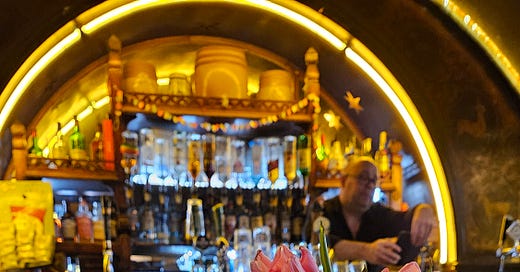


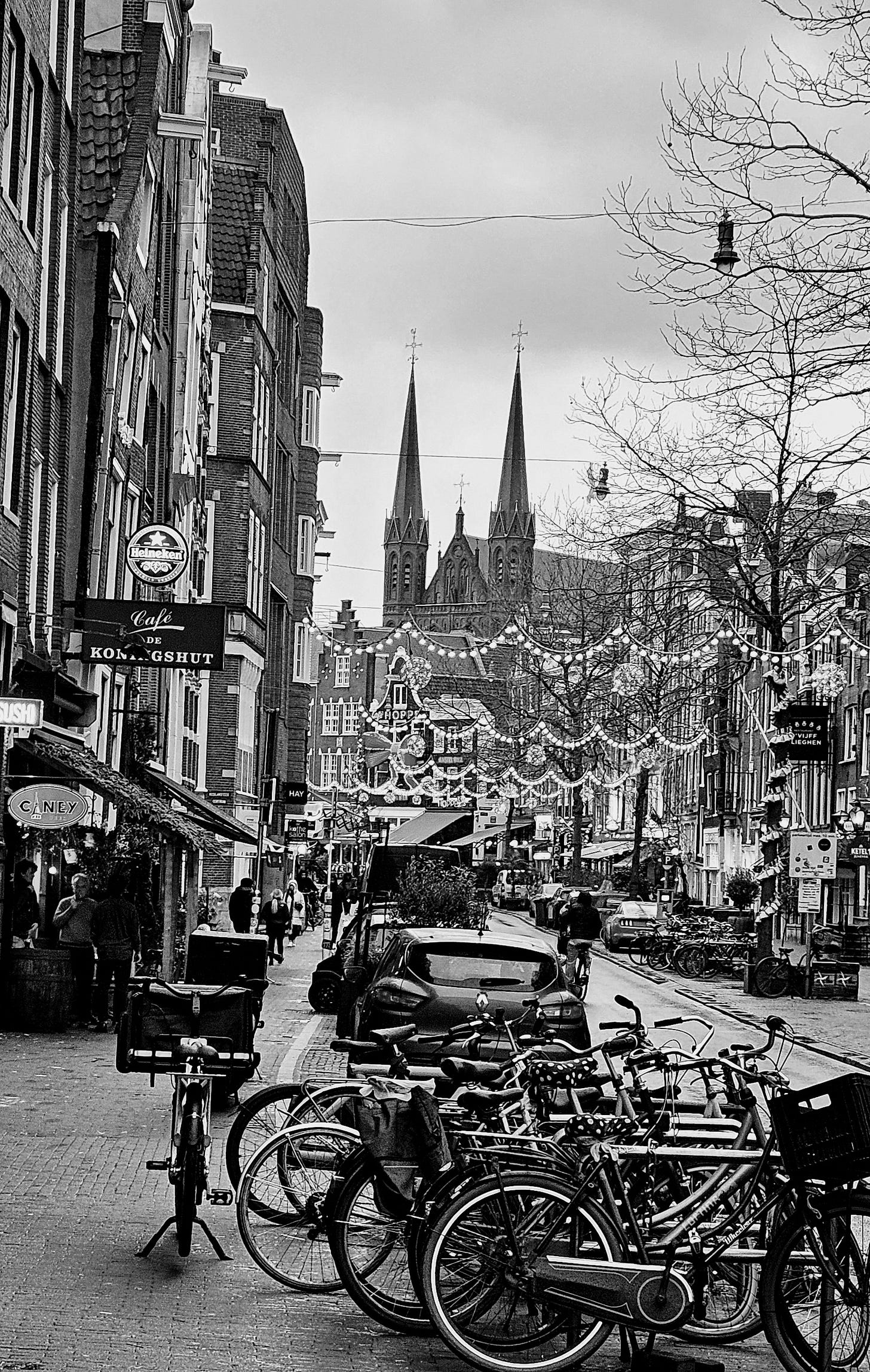
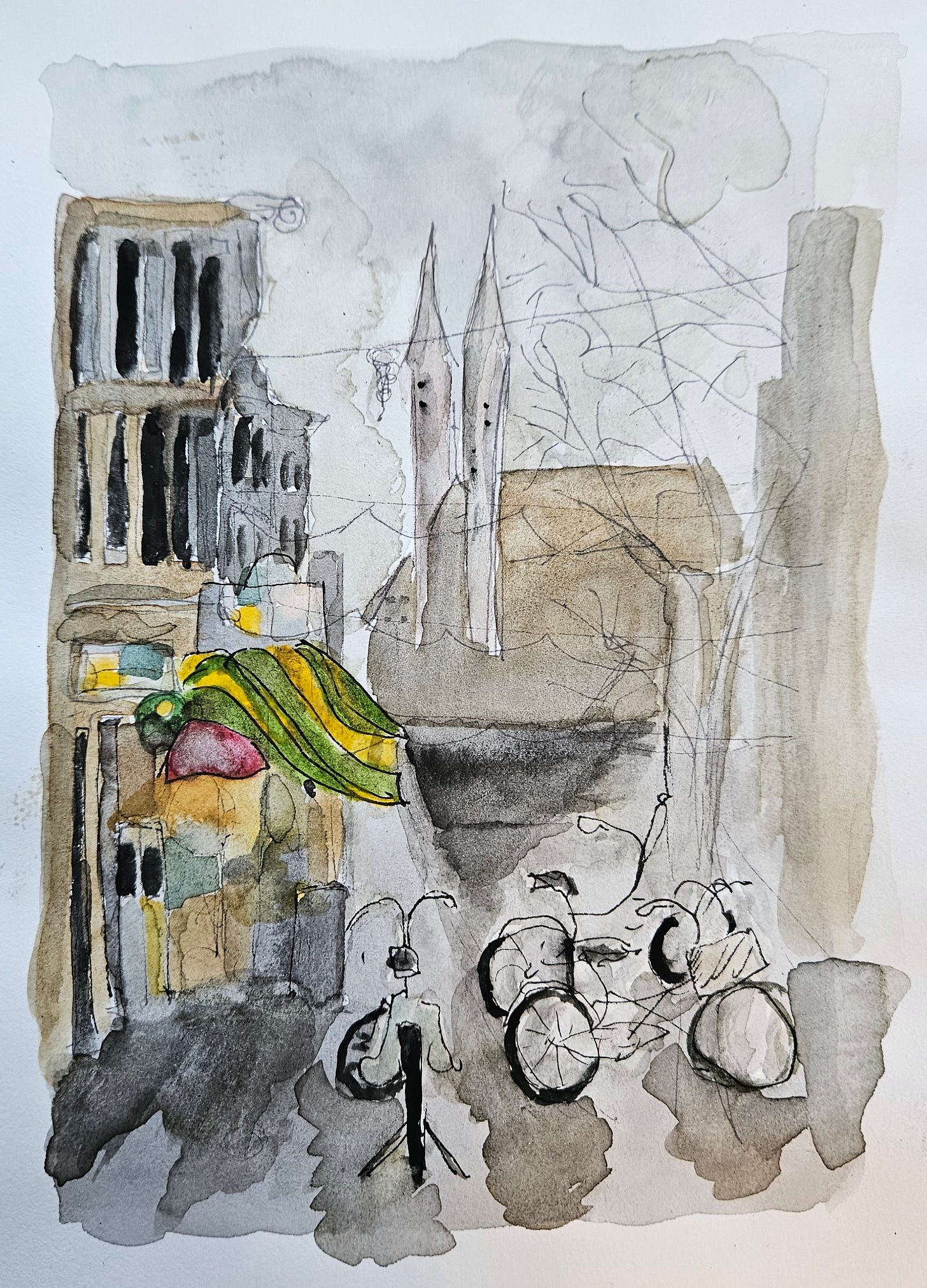
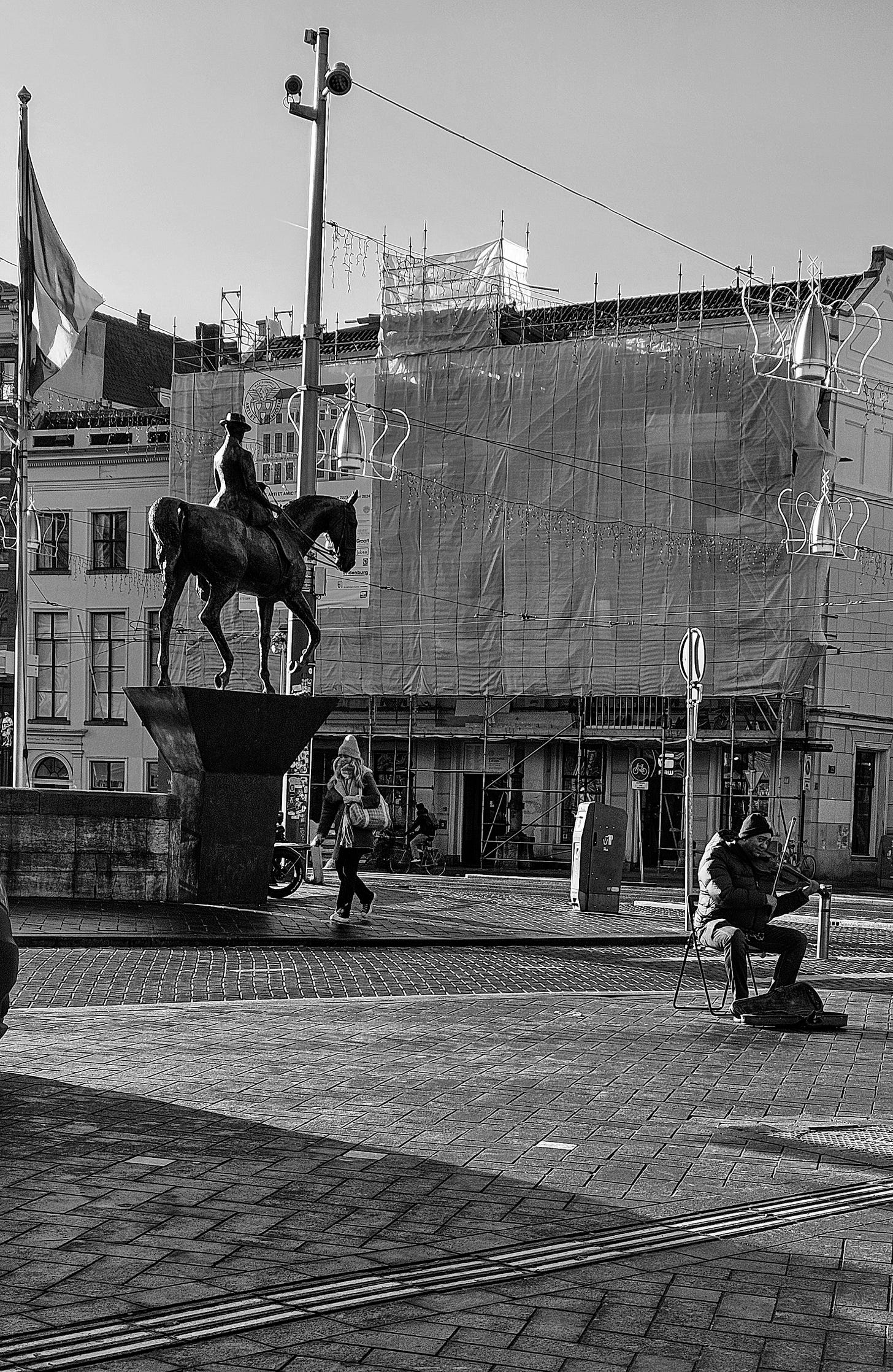
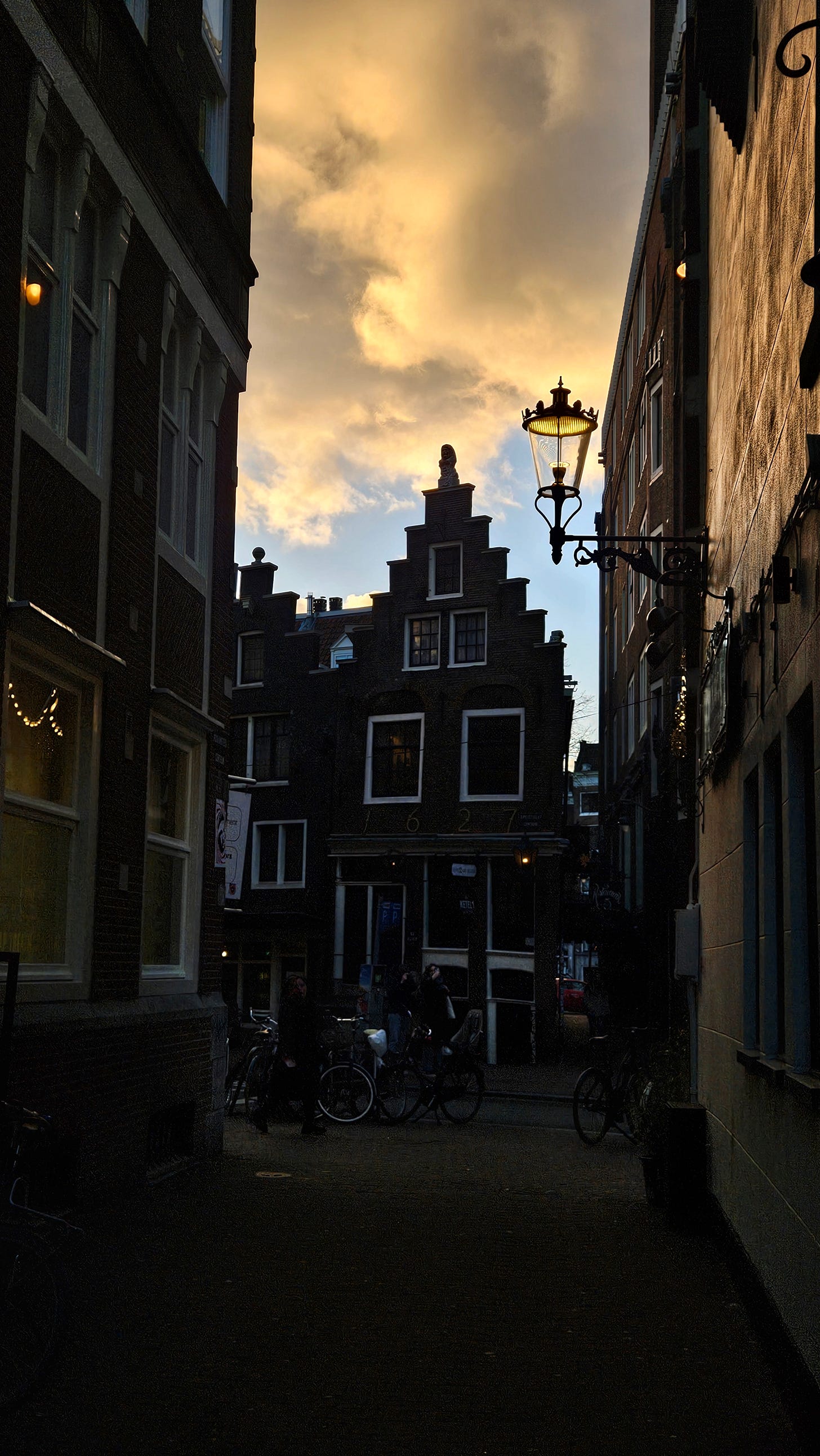
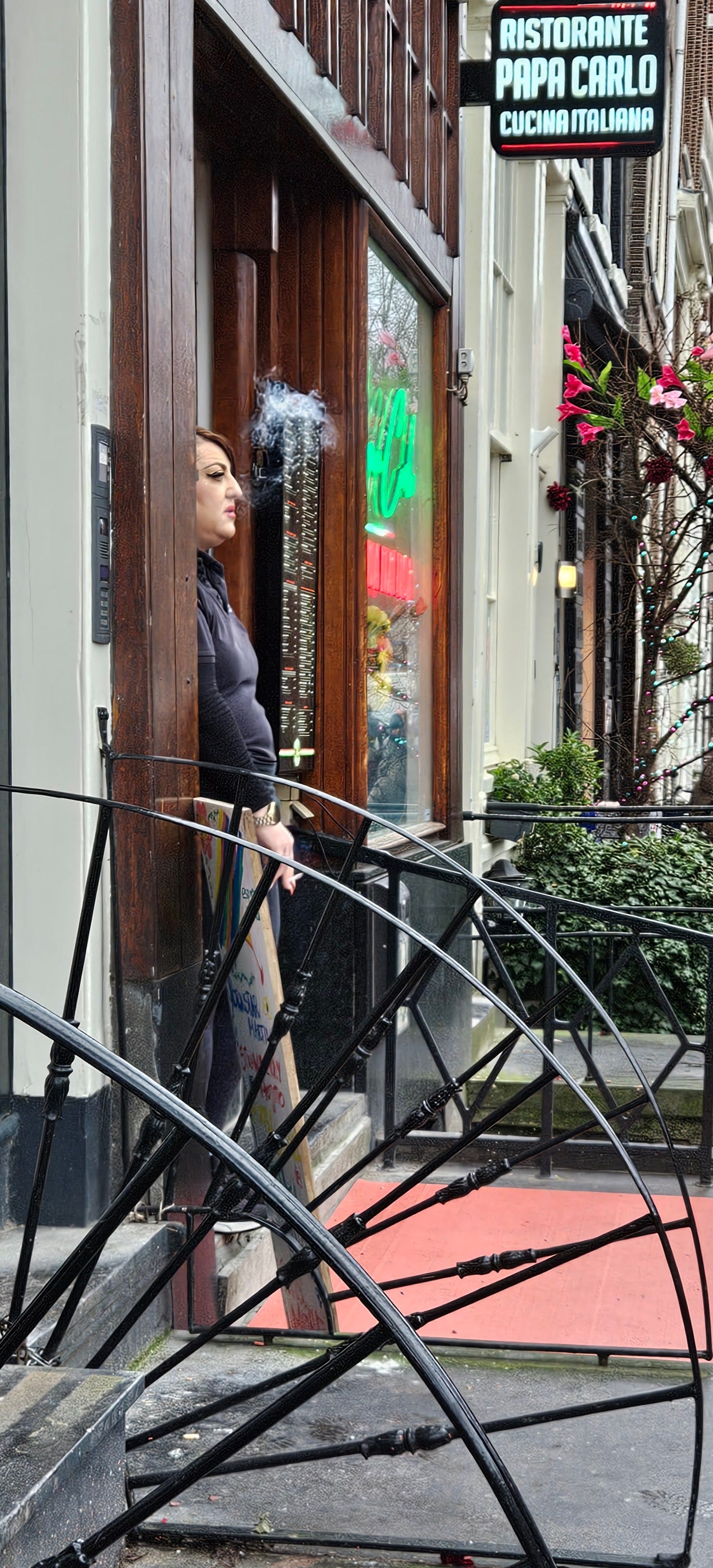
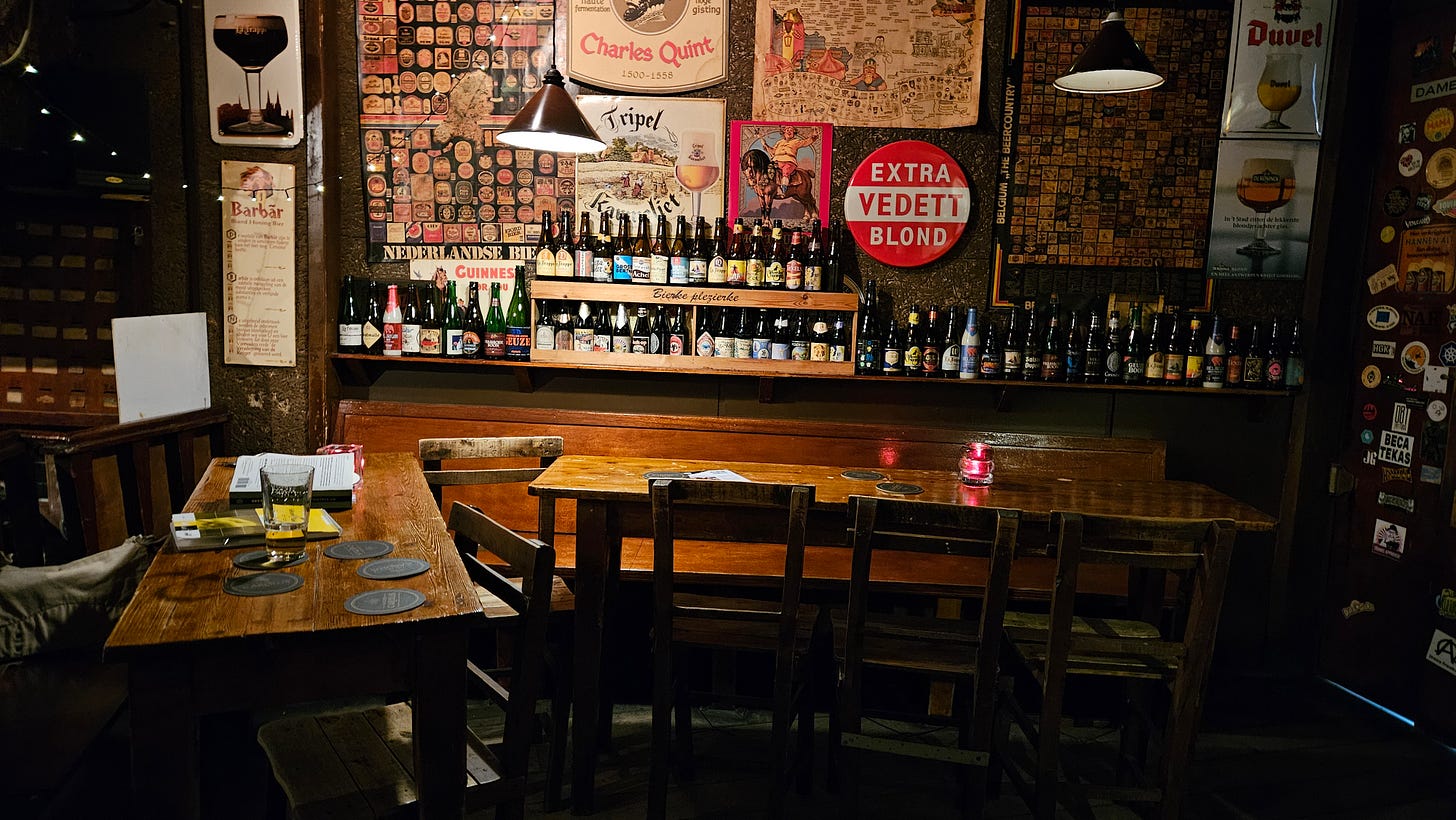
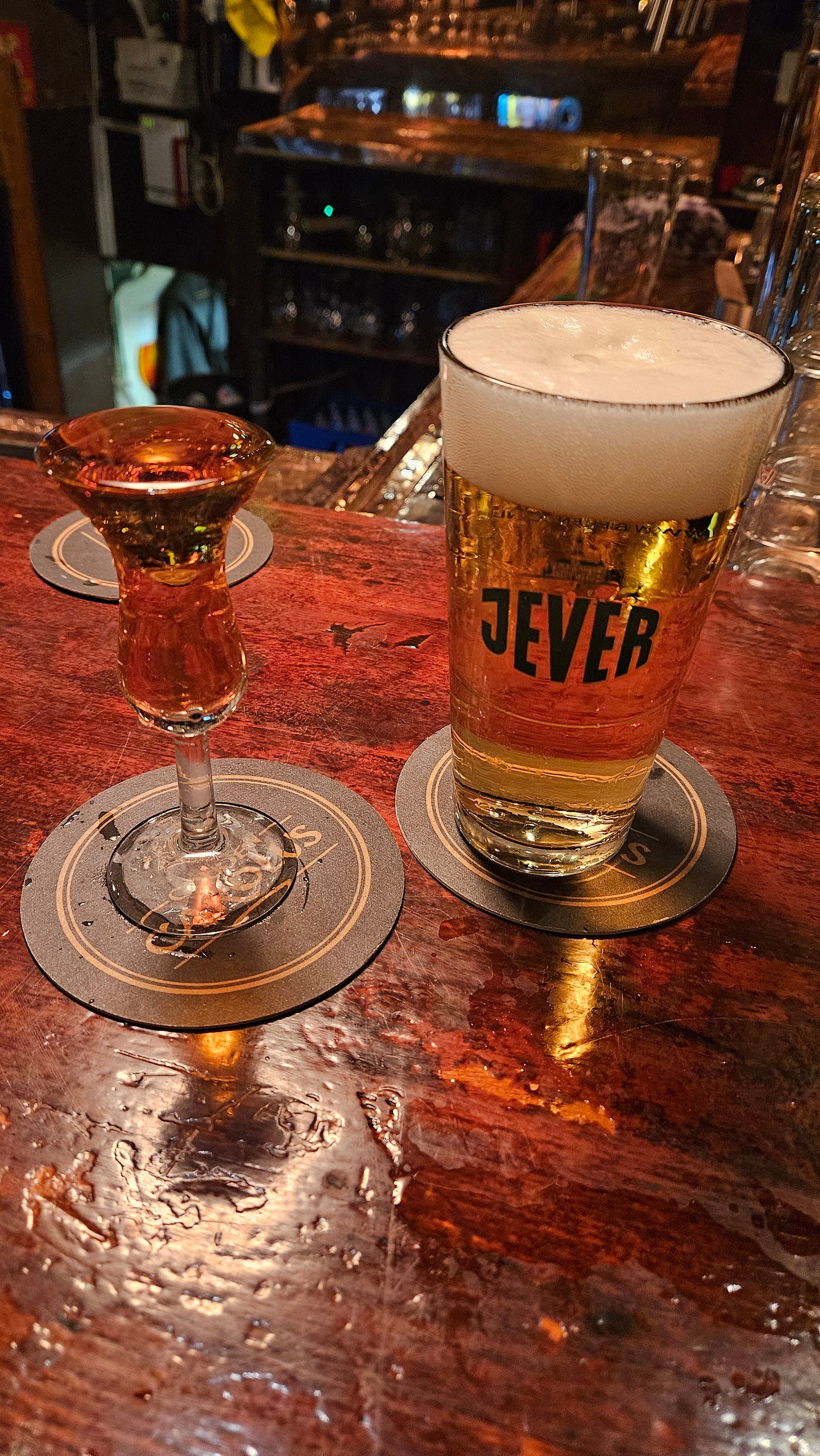
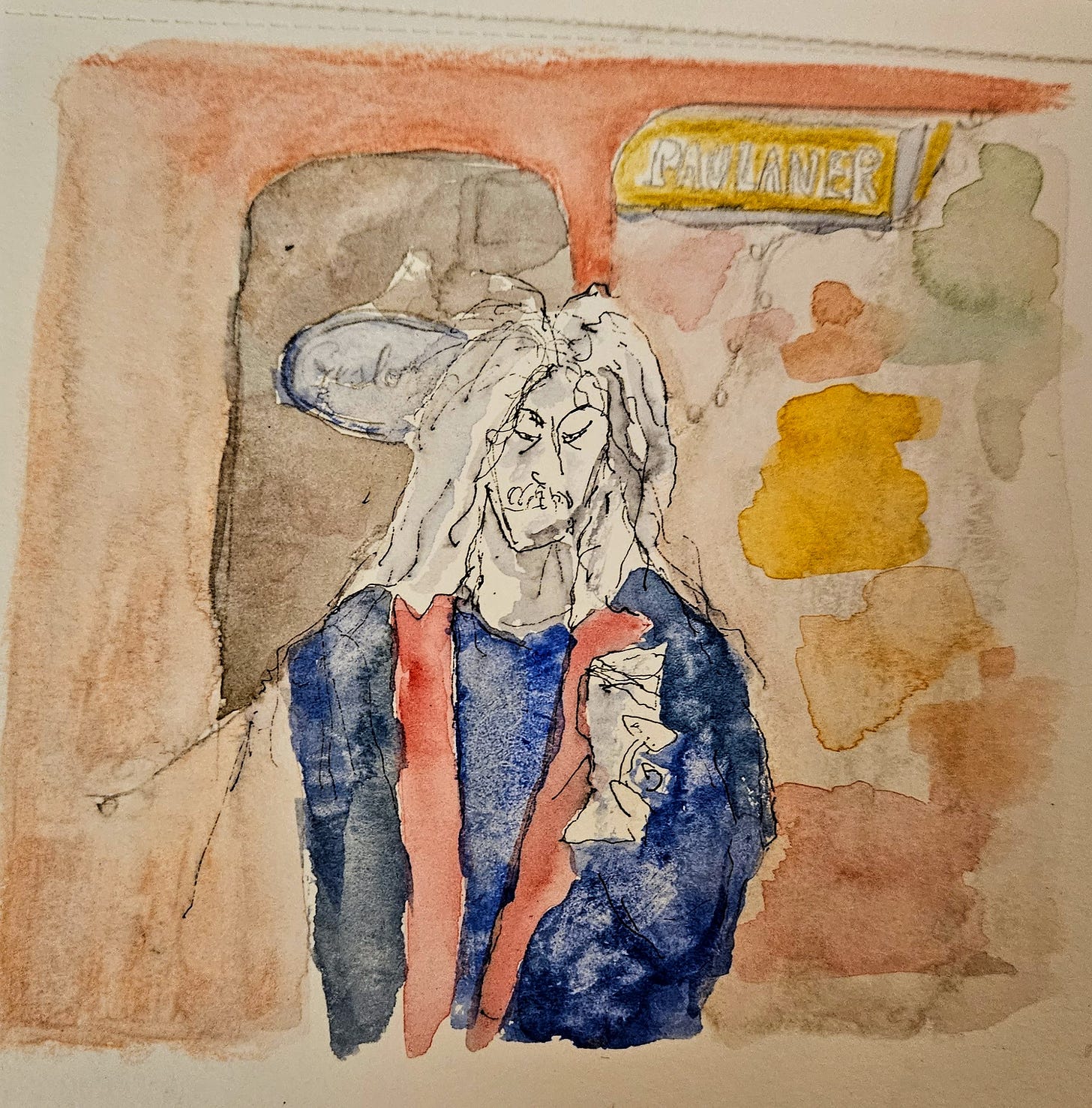
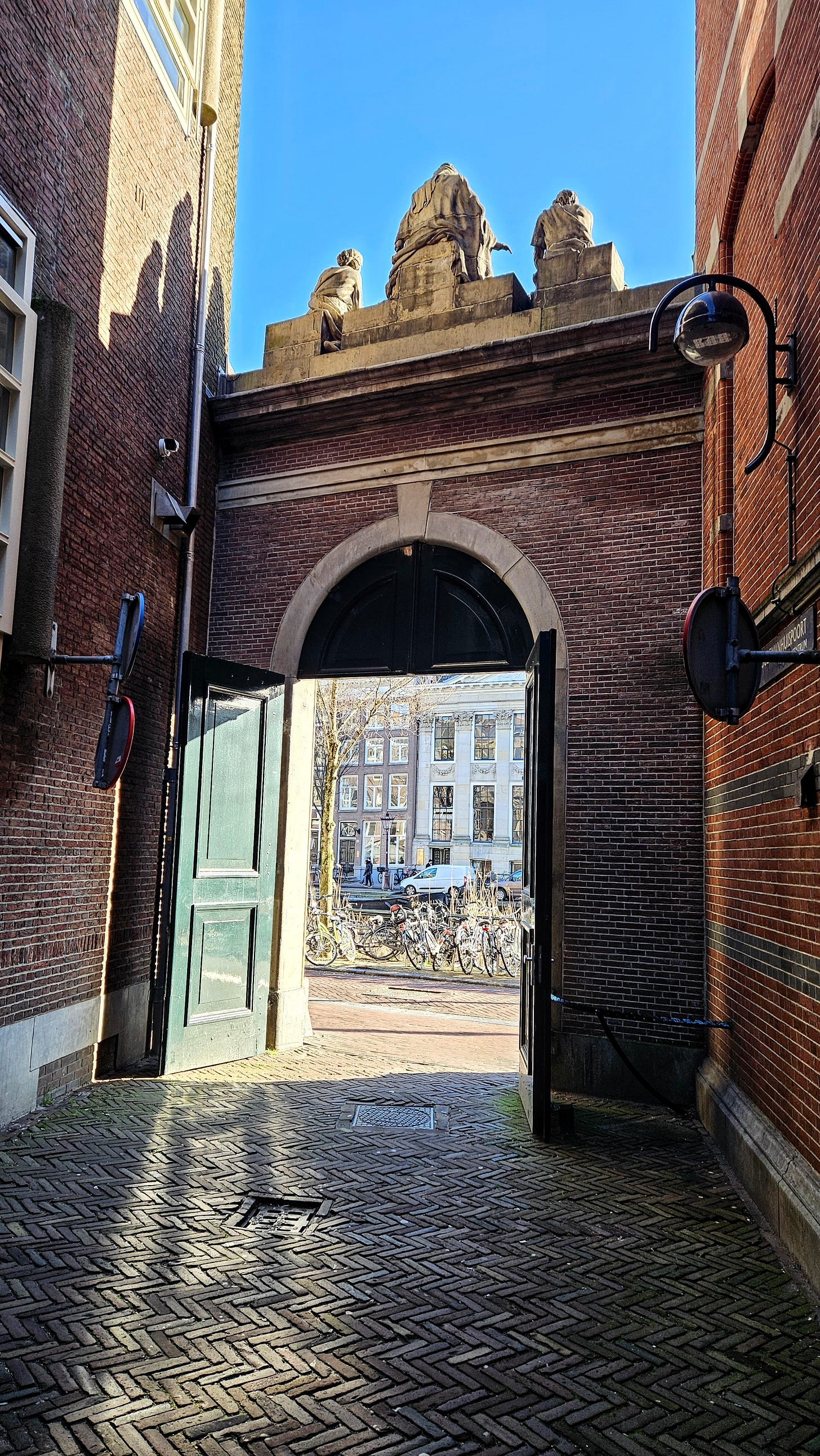
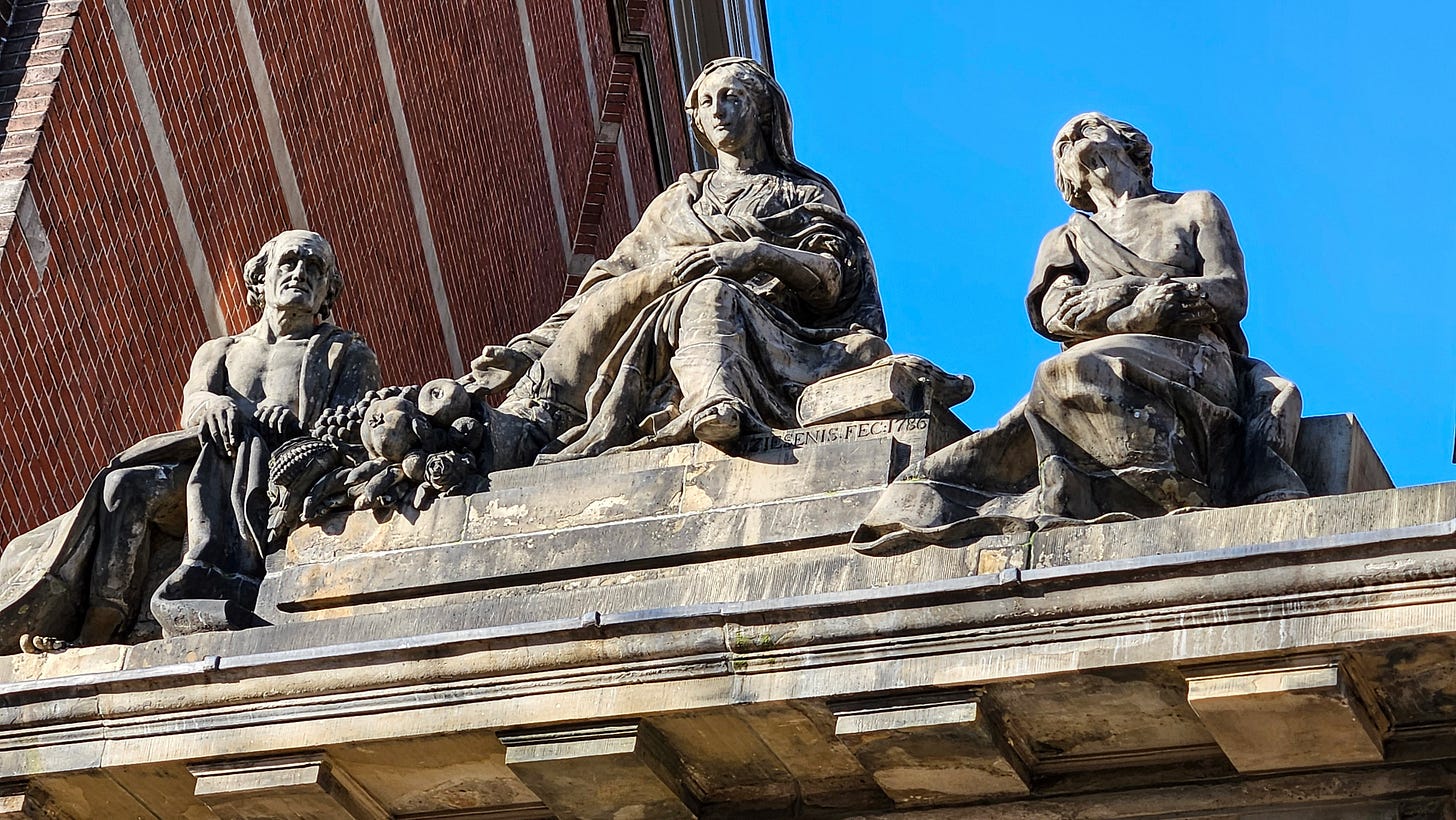
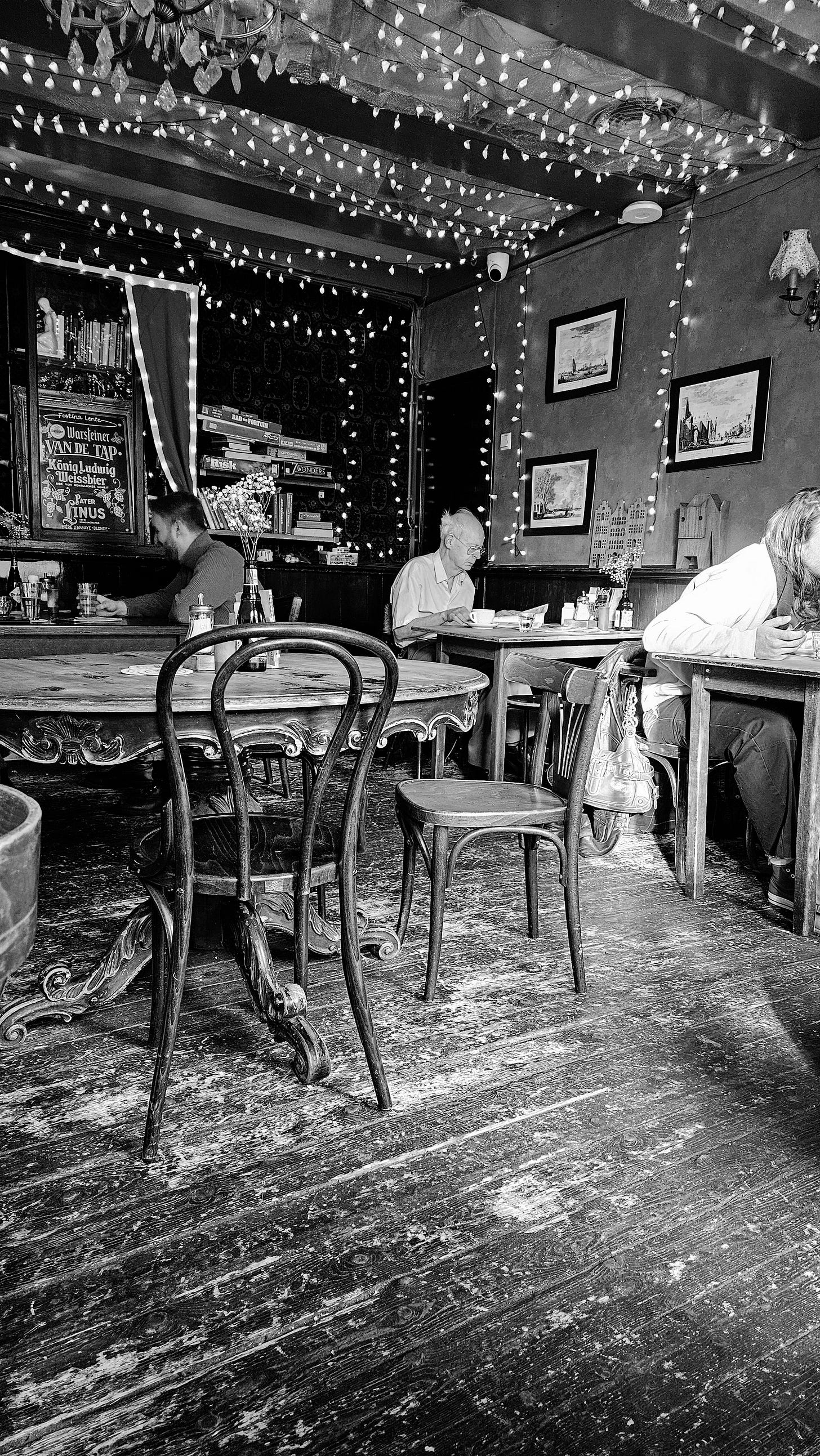
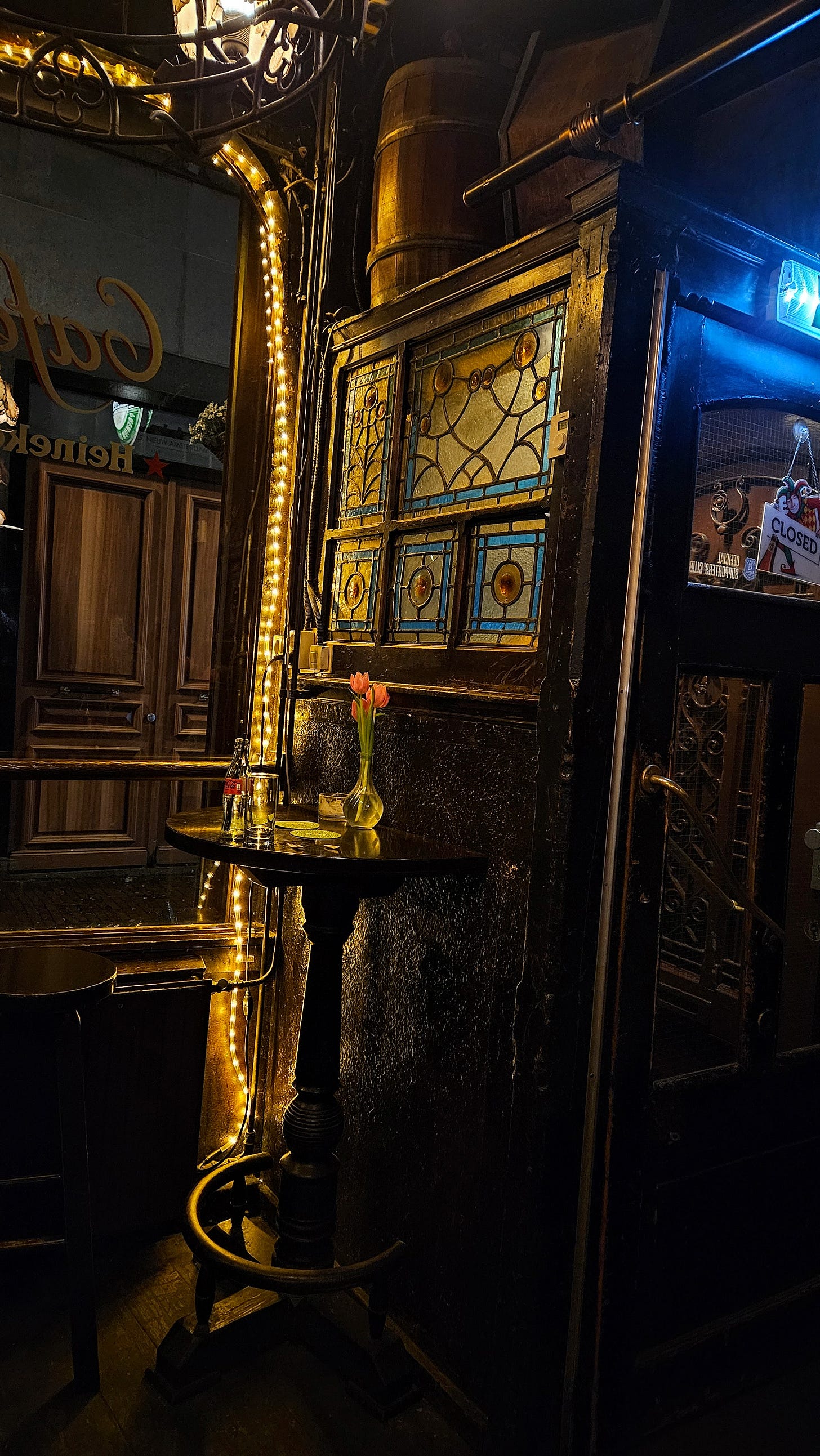

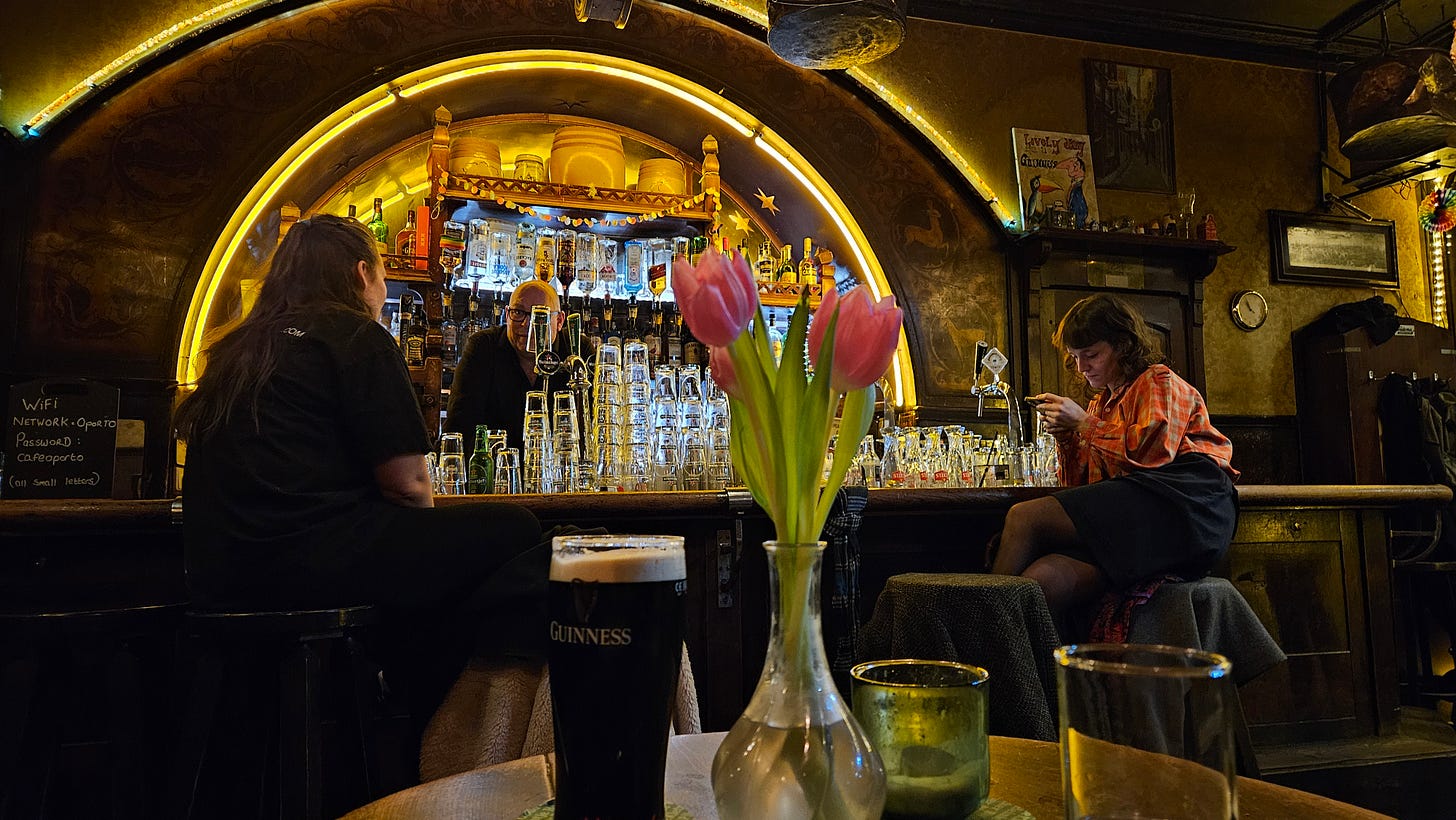
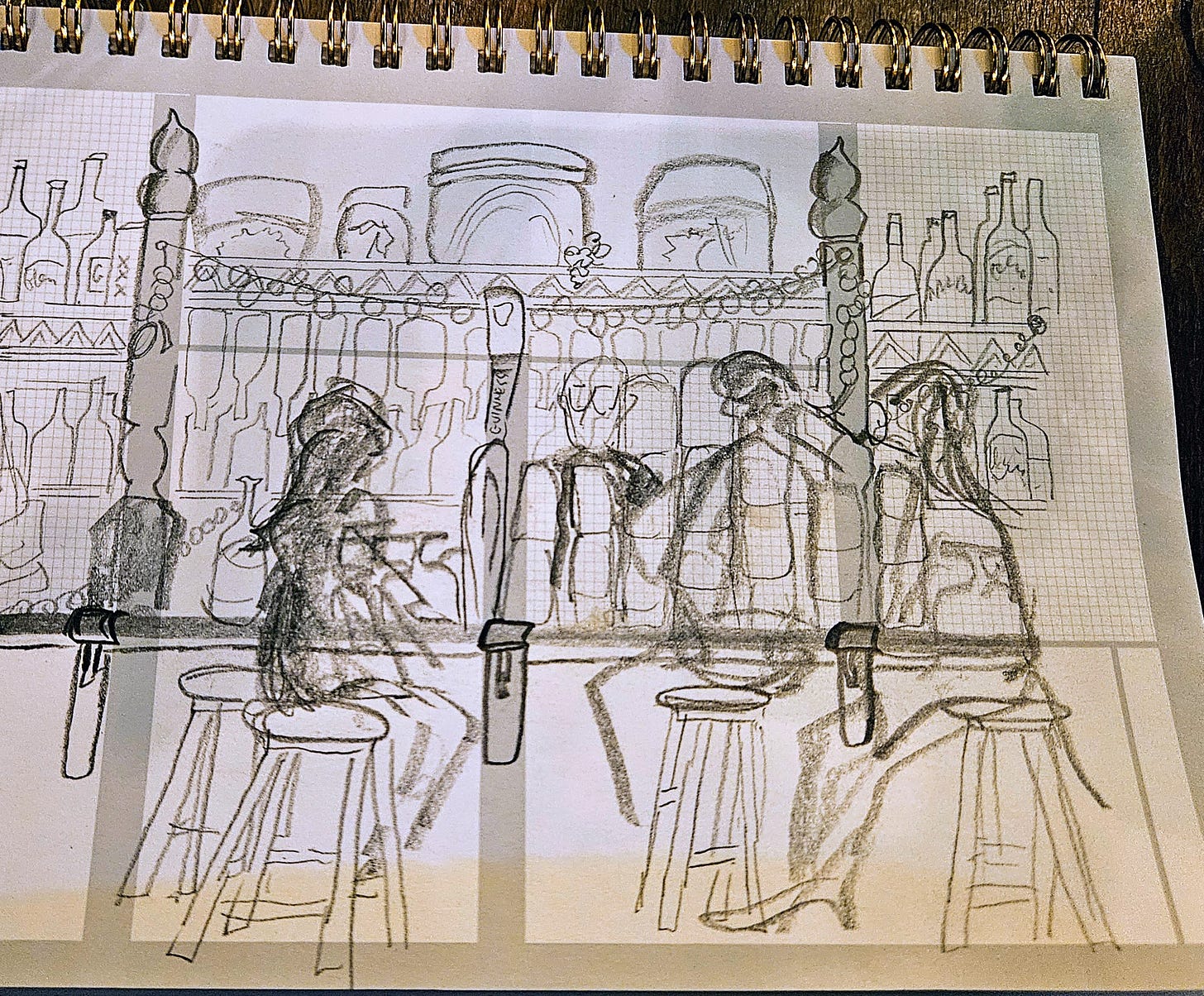
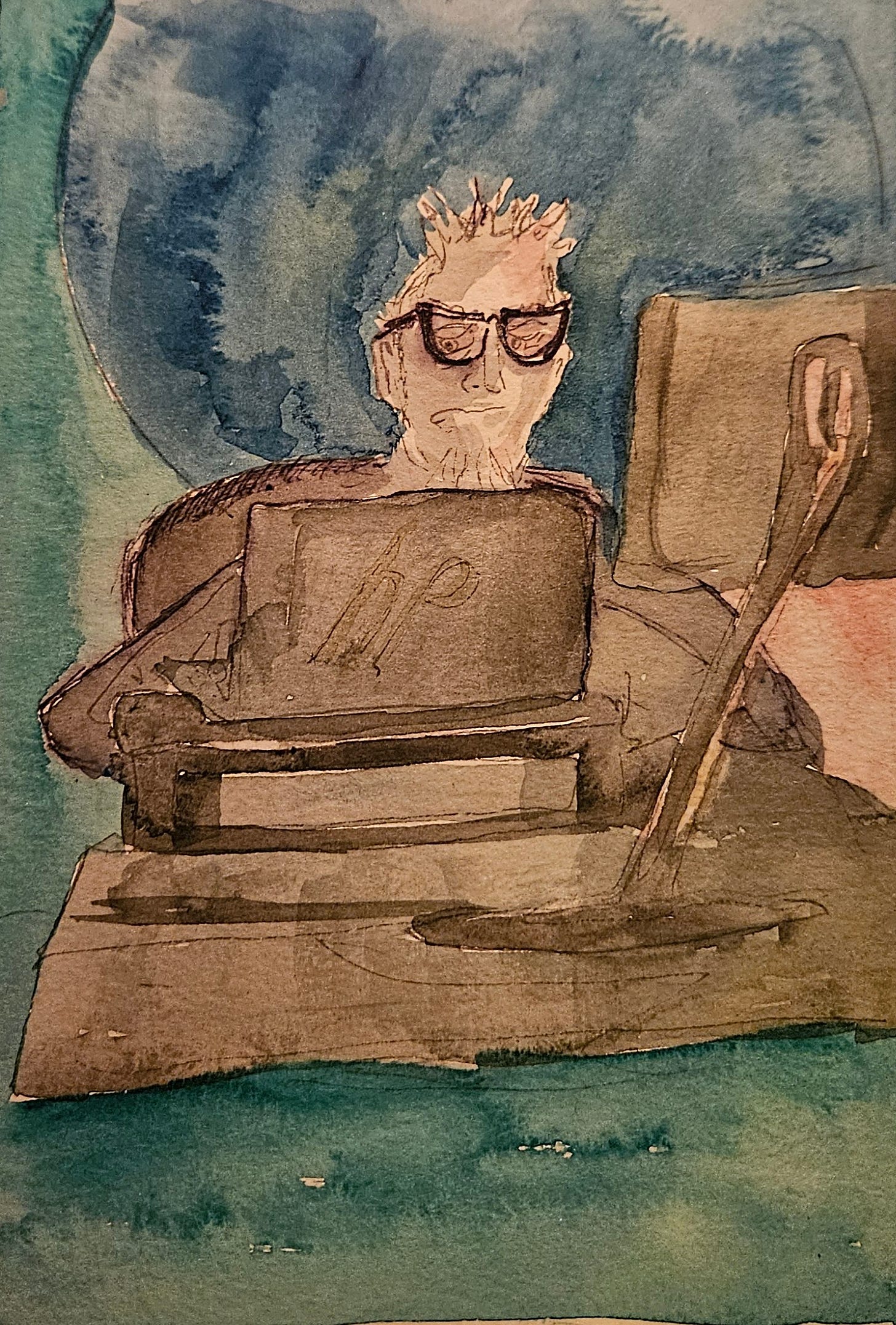
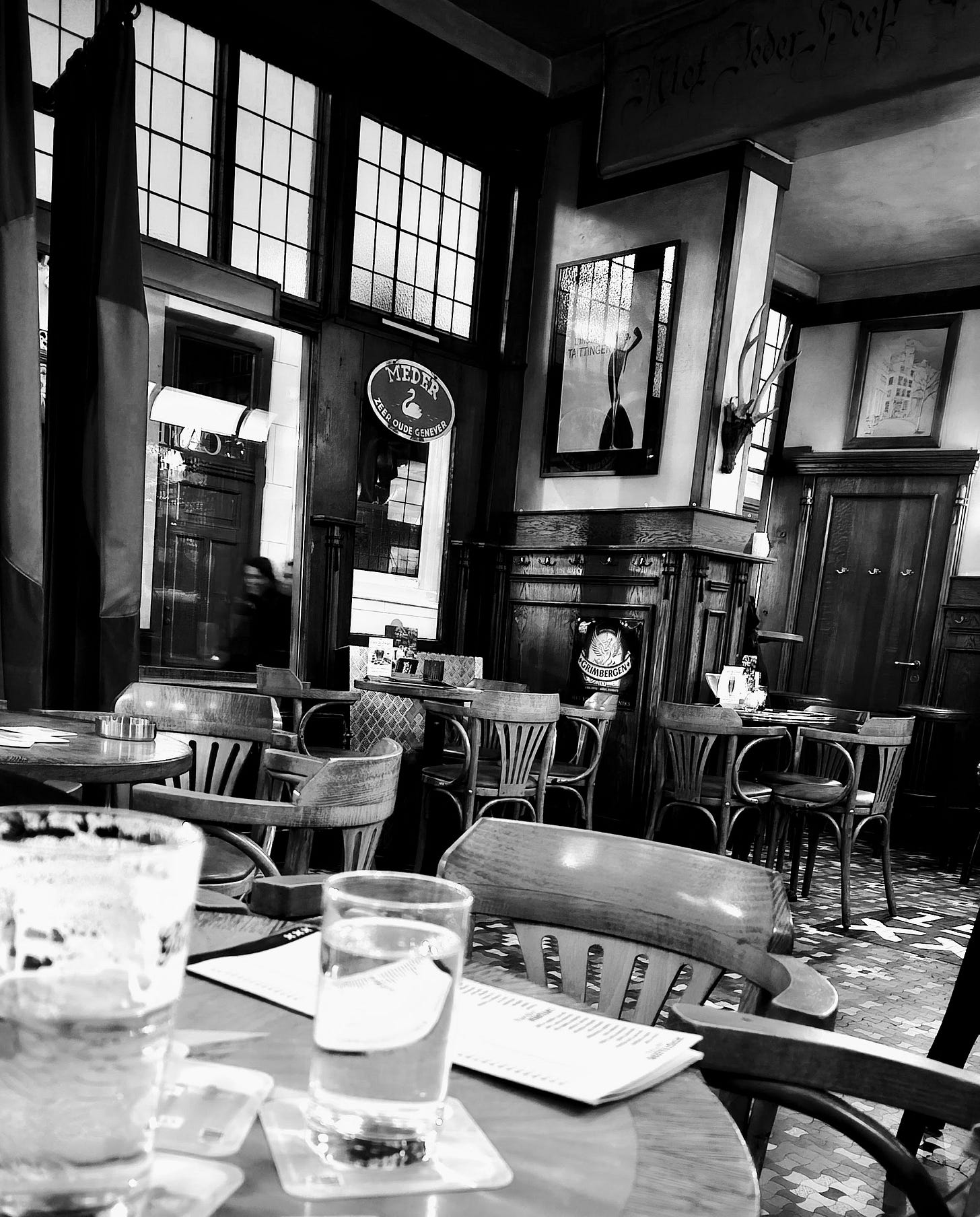
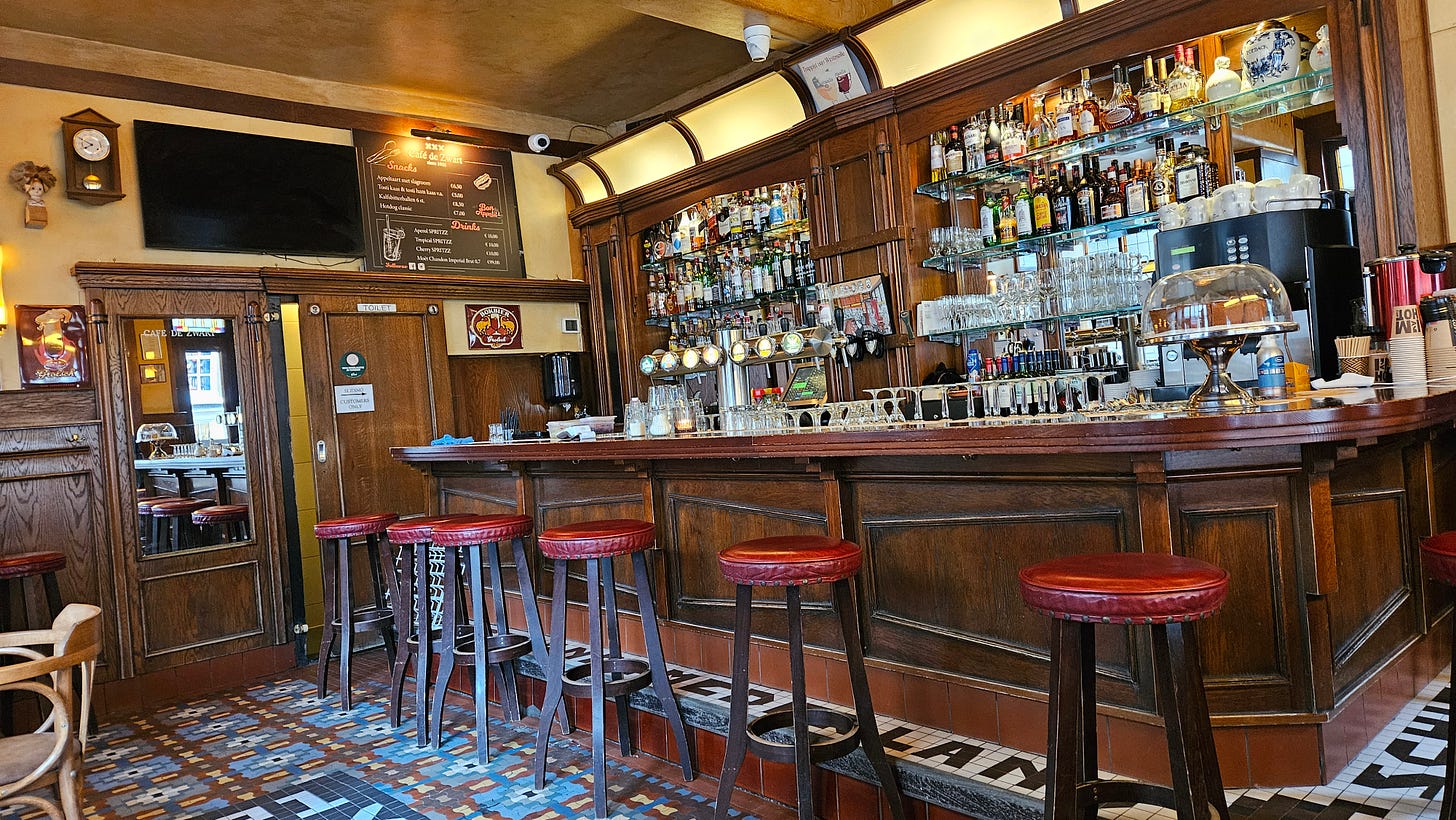
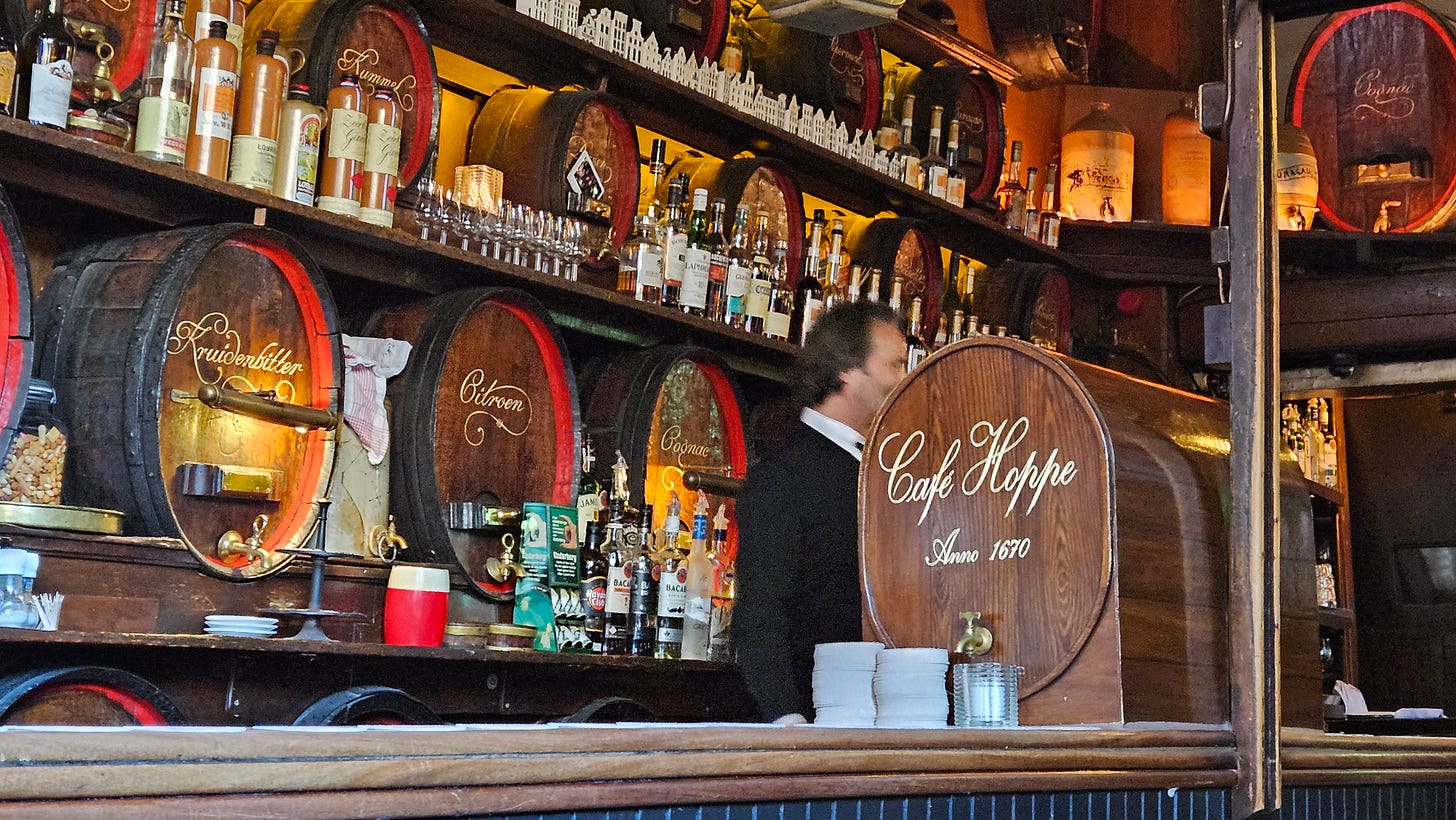
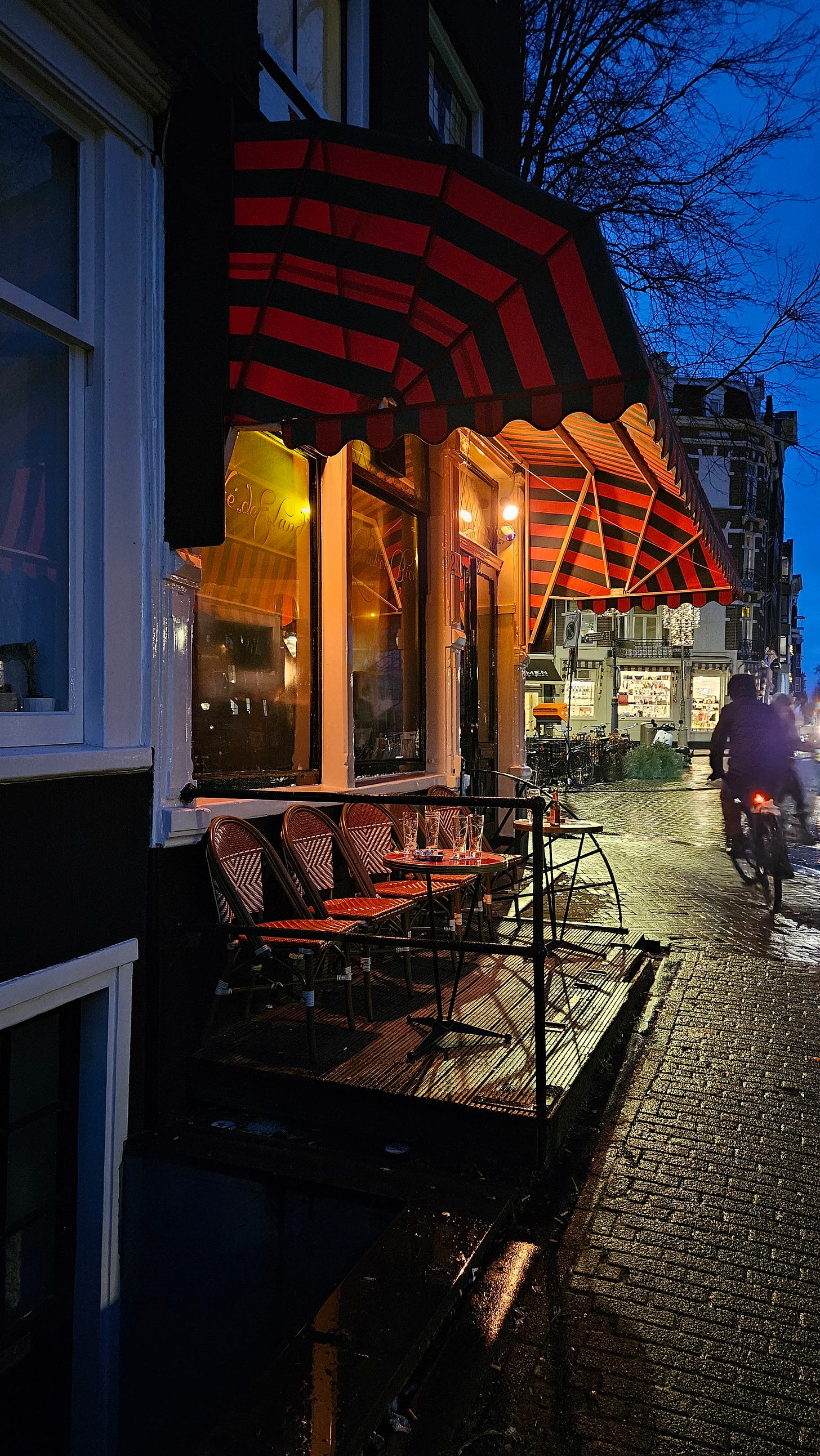
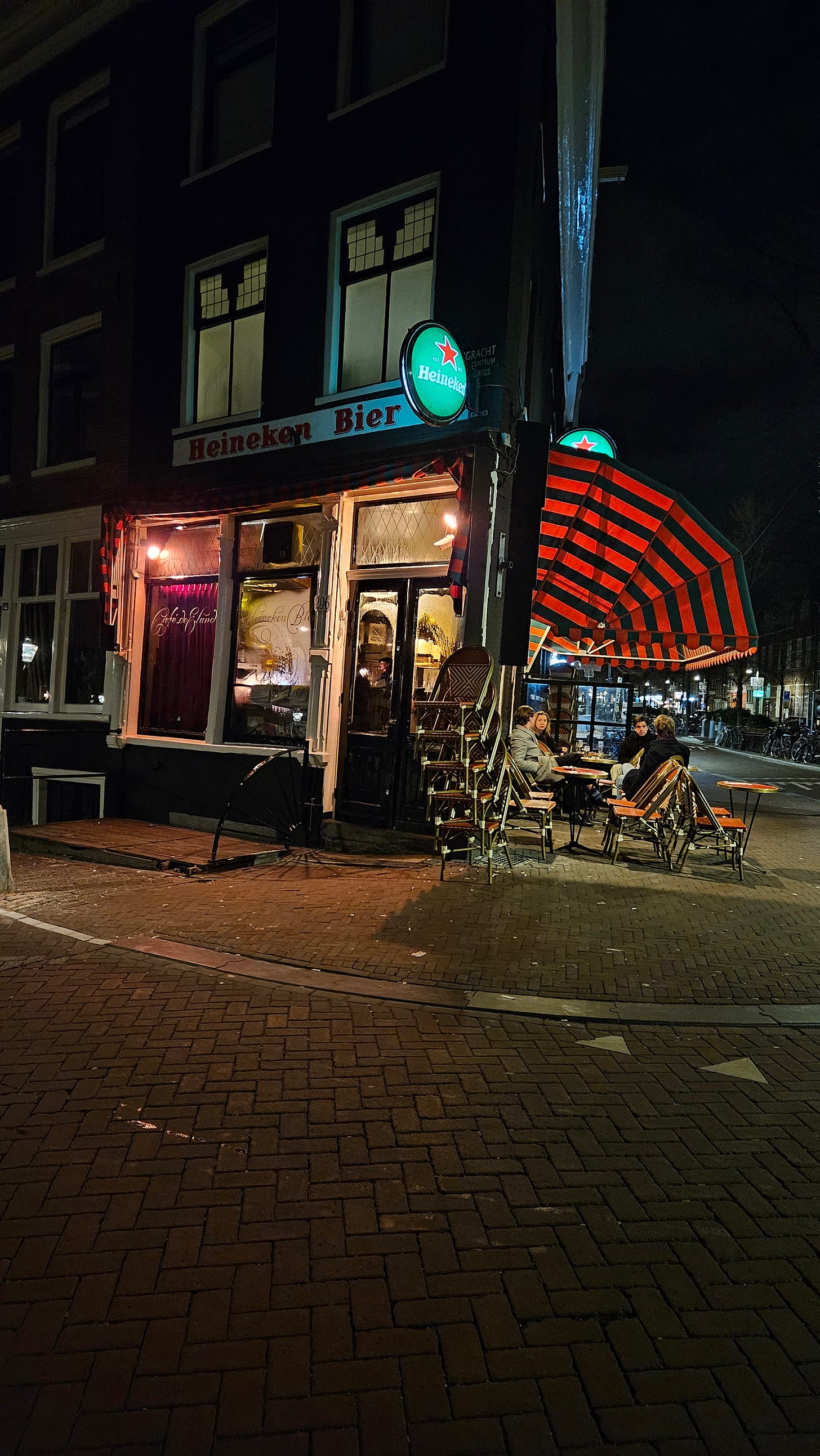
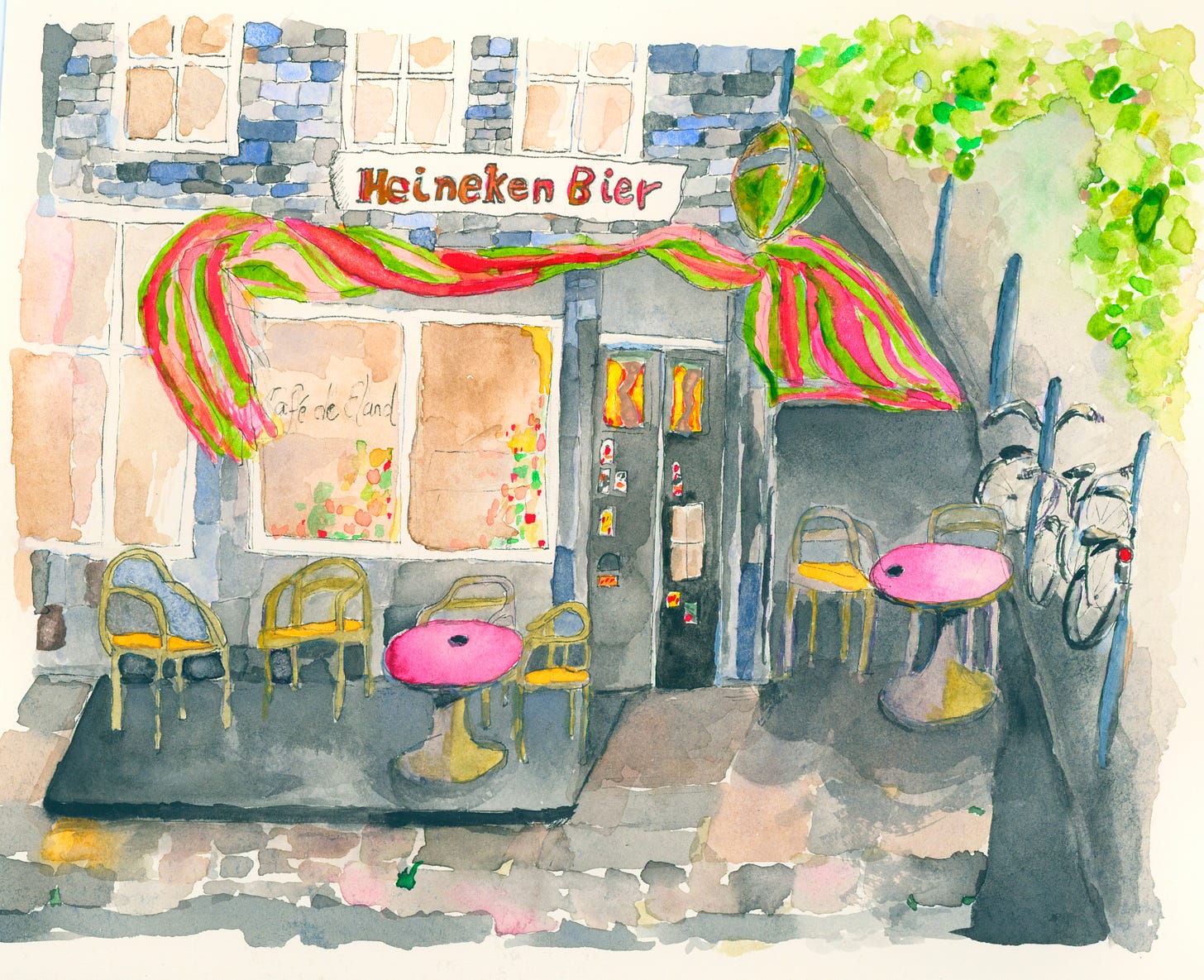
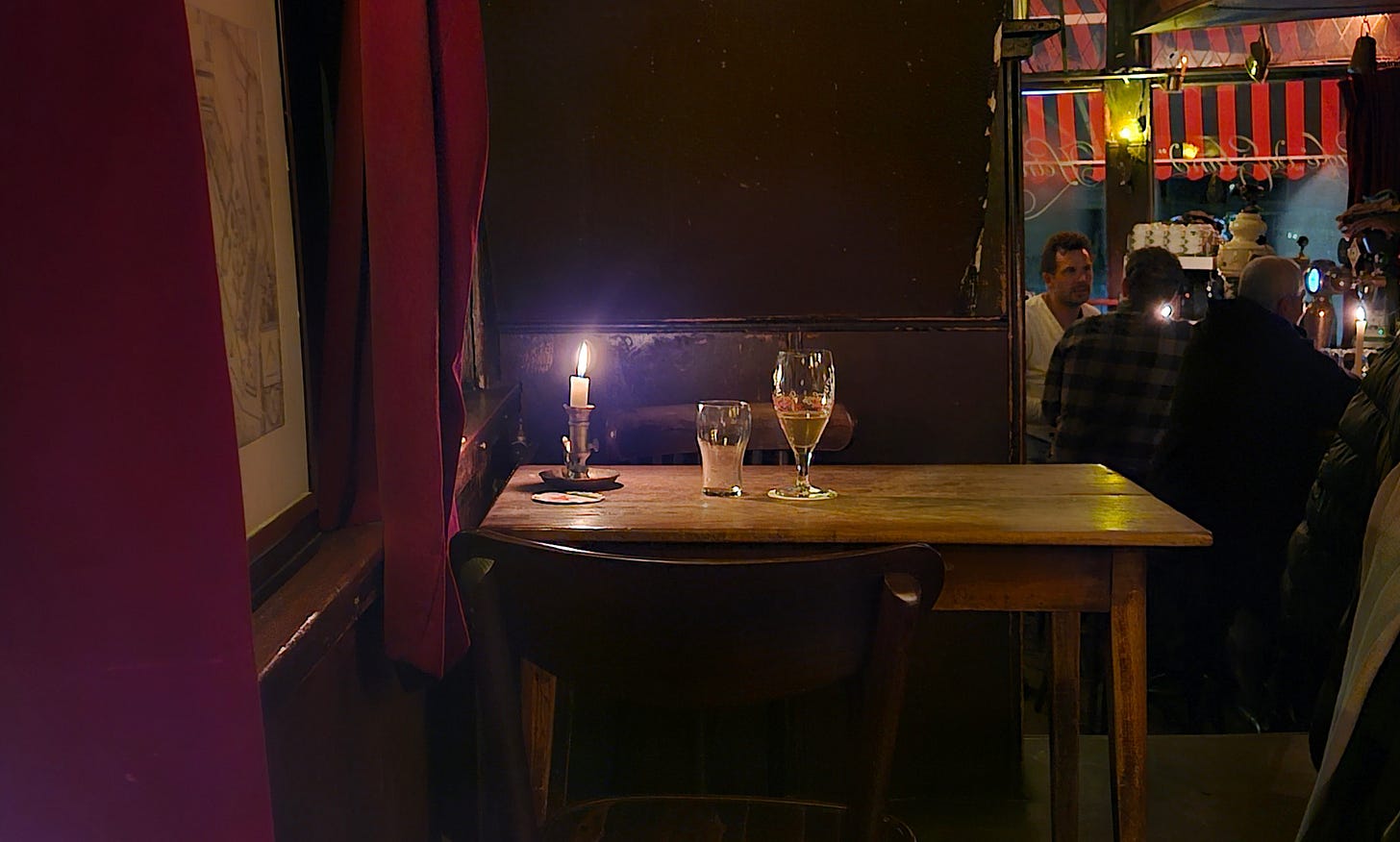
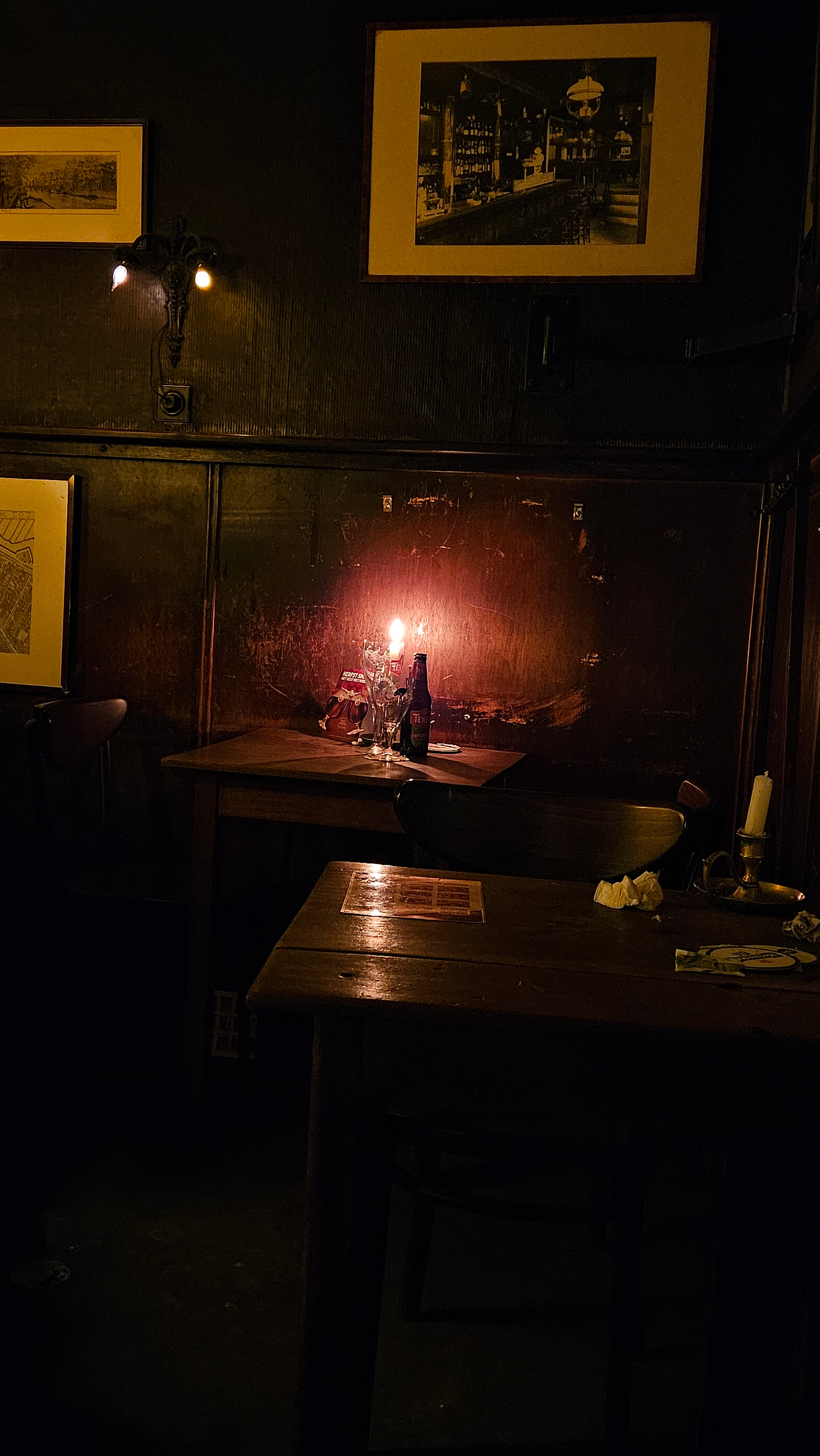
Hi Kenneth, I’m reading all the posts these days. This one made me smile, as I always happen to be registered in the NL as un-married woman; the marriage certificate was not translated and stamped the zillion desired times. Oh well. Life is too short anyway. Sending you hugs
I missed this and your move in real time. Beautiful imagery, through and through. A real feel for the haunts you already have and will soon be haunting.
I have a sordid tale that involves Amsterdam lawyers, the reciprocal US-Nerherlands Tax Treaty, the IRS, and the hourly rates Amsterdam lawyers will soon charge me to solve my problems if I choose. I chose not to choose for now, hoping against hope the problems will disappear with the appearance of a letter in my post, a letter that will arrive in triplicate if it arrives at all.
The only bright side of this tale is that the lawyers are chummy types and promised to show me a good Amsterdam time if the authorities deem I must present my case to the Arbritration Board, a real govt entity, in person. But now, with this post, better news has arrived! It seems that I may, if I ask nicely, have an alternative city tour guide whose rates may be measured in pints and not triple-digit-Euros?
Very, very wonderful photos and sketches in the meantime. I hope for more.